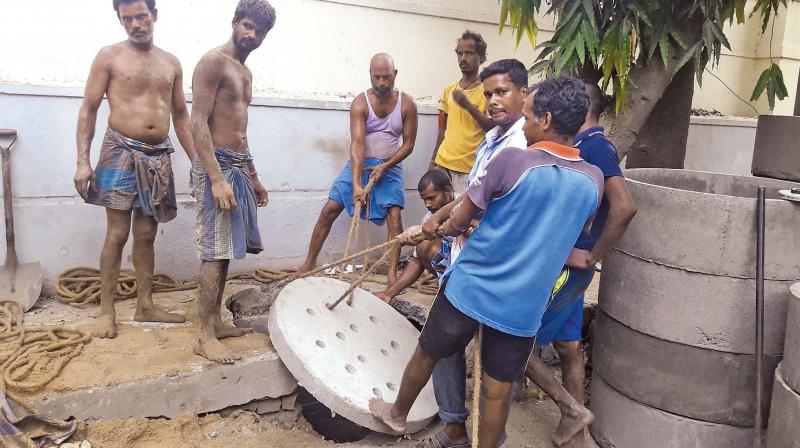Chennai: Well, groundwater level dipping in several areas

Chennai: At a time when residents in the city were gradually coming back to construct traditional wells in their households, they fear that poor rainfall and dried lakes may lead to steady depletion of groundwater as most
parts of the city have gone dry.
A survey conducted by the Rain Centre showed that monitoring wells located in areas like Anna Nagar, Parthasarathy temple, Presidency college, Virugambakkam, Saligramam, Music Academy, Ashok Nagar (18th avenue), Adyar cancer institute and Sastri Nagar and Adyar have completely become bone dry. The study was conducted in 24 monitoring wells in the city with most wells showing a sharp decline of groundwater.
"Going by the present scenario, ground water level in the city has taken a dip. We usually conduct such a study every month. The level was good in 2016 as there was torrential rain and subsequent floods. However, there was a little dip in the table in 2017, as the city recorded only a couple of heavy spells," said Sekhar Raghavan, director of the Rain Centre, which recommended the rain water harvesting system (RWHS) to government a decade ago.
Such depletion of ground water will directly impact residents of the city, who opt for constructing traditional open wells in open places, the water expert pointed out, and added that there should be strong awareness on RWHS.
"Residents think that they can collect water through RWHS only if there is heavy rain, but the fact remains that even light rain helps improve the groundwater table," Sekhar noted.
The groundwater depletion is adding yet another problem to the Chennai Metropolitan Water Supply and Sewerage Board (CMWSSB), which might go for ground water sources, if the northeast monsoon fails. "As of now, there is no talk of interrupted drinking water supply. Of course, groundwater level would have gone down in the city and its region due to poor rainfall," said an official of the CMWSSB. He said they would wait till the end of December and decide the next course of action.
Meanwhile, storage in metro lakes stood at 1,716 million cubic feet (mcft) against total storage of 11,257.

